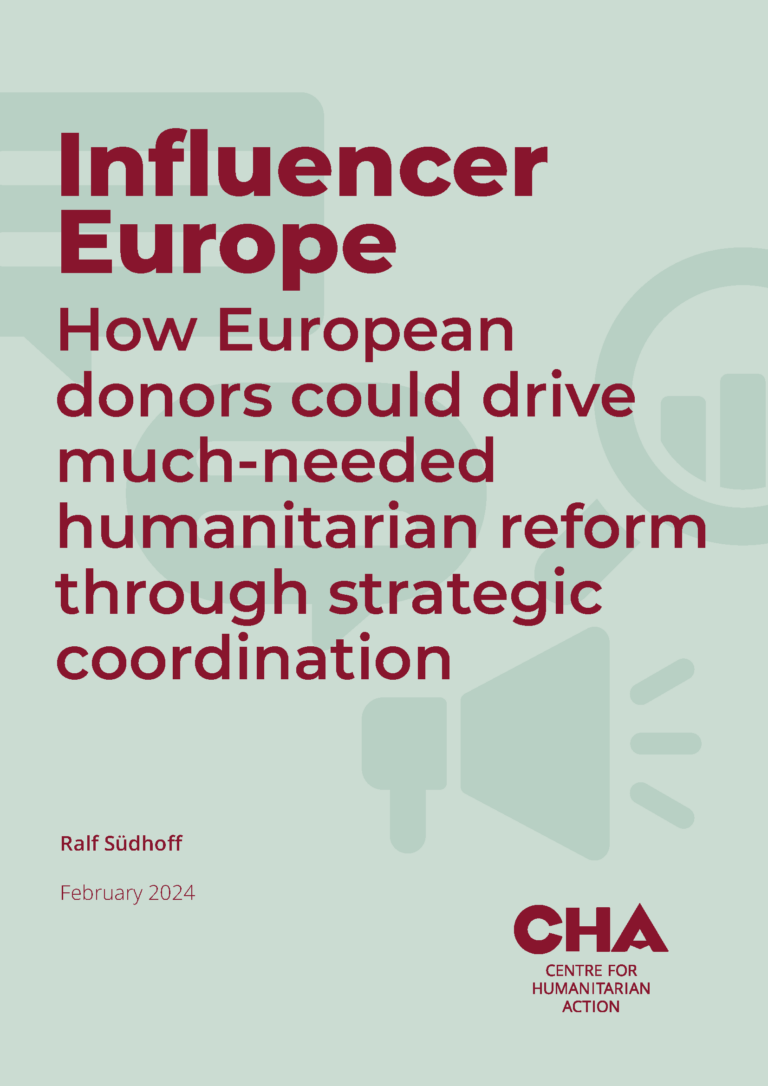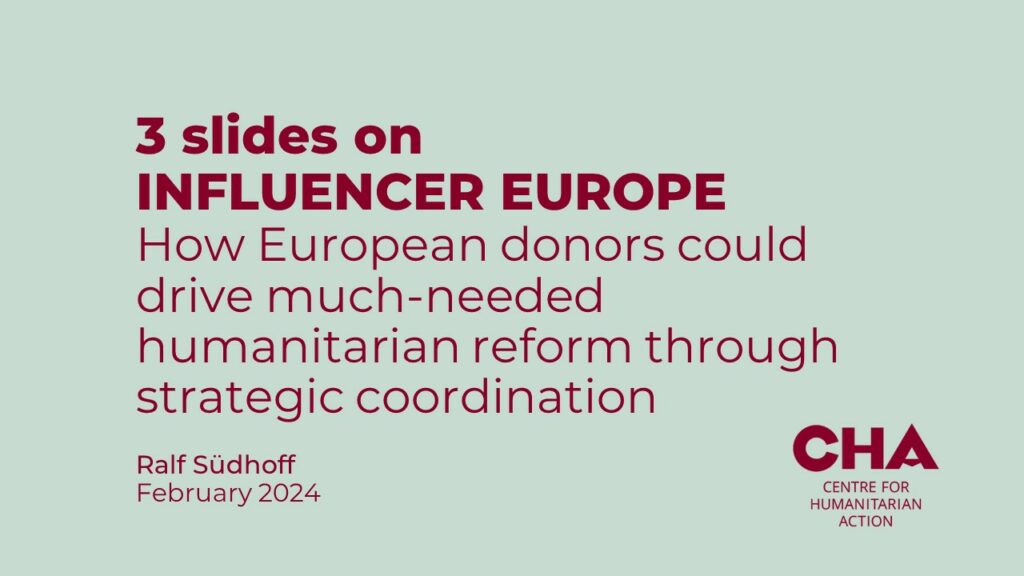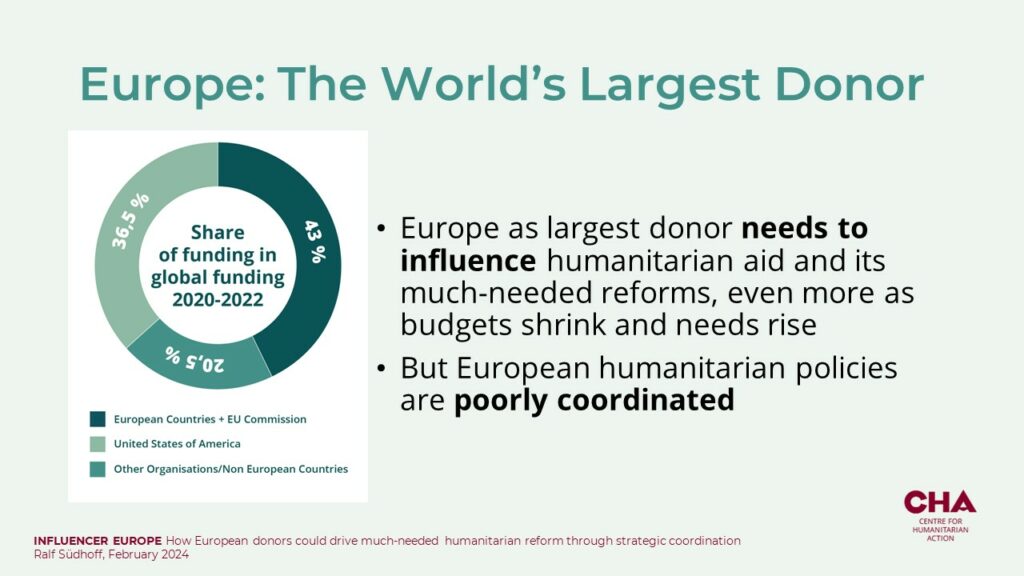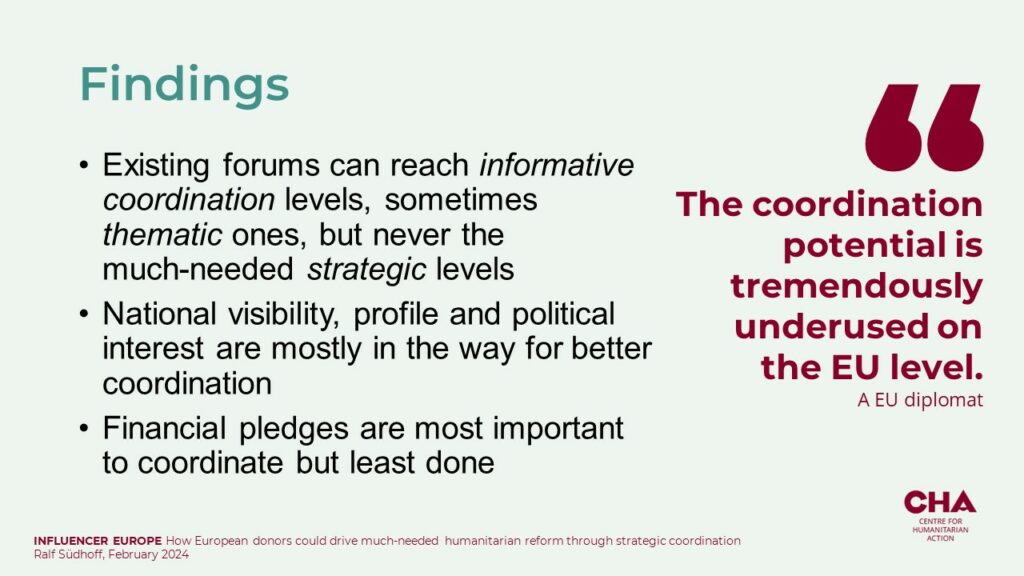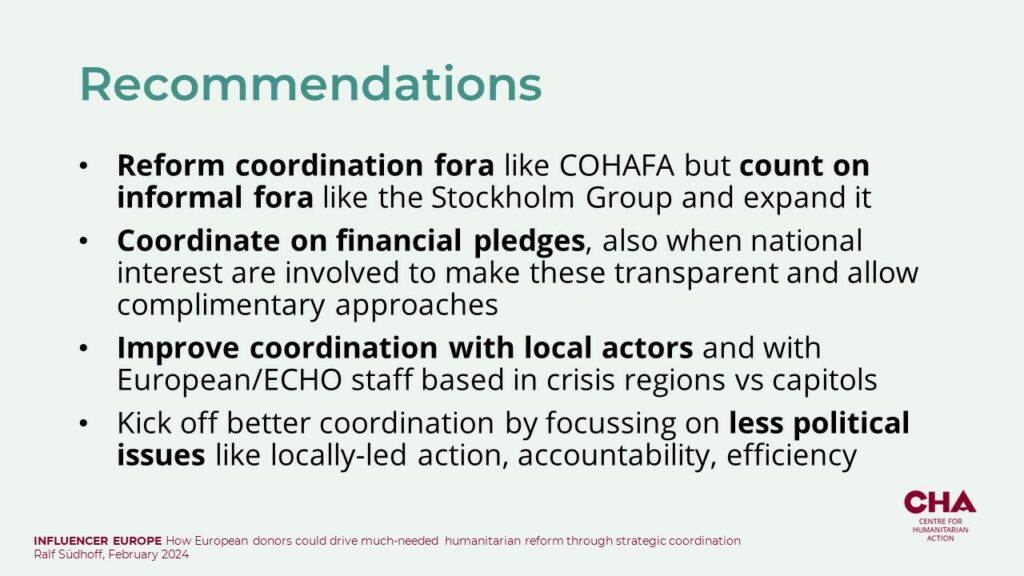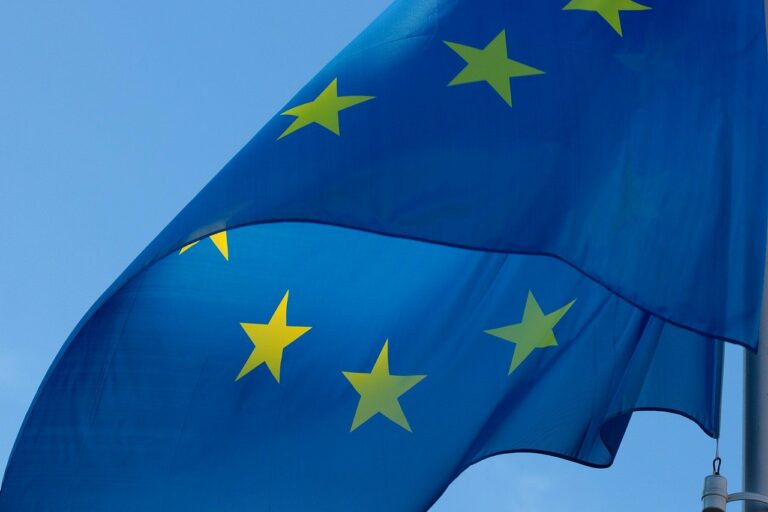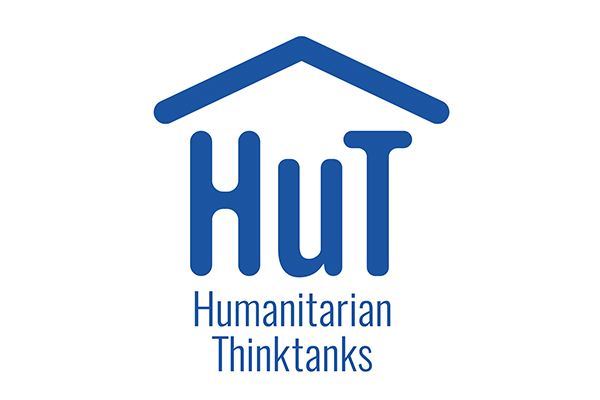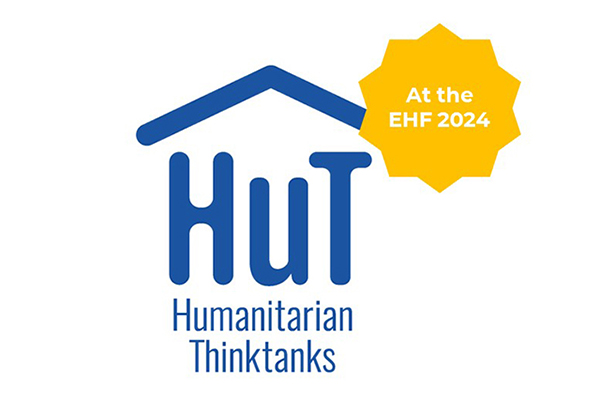| Author: | Ralf Südhoff |
| Date: | 15.03.2024 |
| Downloads: |
Paper (DE)
Paper (EN) Paper (FR) Executive Summary (DE) Executive Summary (EN) Executive Summary (FR) |
Calls for reforming humanitarian action are currently louder than they have been in years, fuelled by a growing funding gap and at least 300 million people in need worldwide. There is a growing consensus that the current humanitarian system is not fit for purpose and requires fundamental reforms. Europe, as the world’s largest donor and home to nine out of twelve of the world’s top donors, must address this need for reform. However, with 27 EU member states and three top European donors outside the EU, each with different interests and policies, coordinating European humanitarian policy poses a significant challenge. Coherence in key issues among European state actors is a prerequisite for leveraging the current momentum for reform.
This new paper aims to explore how European humanitarian policy is currently coordinated, which forums of coordination need to be reconsidered or established and which humanitarian issues show promise for success amidst the complexities of differing political interests and conflicting national priorities.
In his analysis Ralf Südhoff outlines ten recommendations for improved coordination processes, including:
- Reforming COHAFA into a policy-oriented forum that could evolve from informative to thematic coordination levels.
- Focusing on informal coordination forums such as the Stockholm Group, which could be moderately expanded and elevated to a strategic coordination level.
- Establishing a systematic exchange regarding interest-driven funding decisions to achieve complementarity plus coordinate funding of so-called forgotten crises.
- Enhancing regional coordination through the continued development of a humanitarian hub in Brussels and informal local networks.
- Improving coordination of European donors’ collaboration with research institutions for joint evidence-based policies.
In addition, he identifies five potential areas of reform that exclude currently politically sensitive issues, while allowing substantial humanitarian reforms through more strategic European coordination:
- Accountability of humanitarian agencies
- Locally-led action & participation
- Sanction regimes and humanitarian exceptions
- Efficiency gains
- Humanitarian aid and social welfare in fragile/authoritarian states
Take Aways:
This paper is a result of the project component Linking German and European Policy Capacities, which is part of the project “Strengthening Programme and Policy Relevant Capacities of Humanitarian Actors in Germany” (SPreAD), funded by the German Federal Foreign Office.


